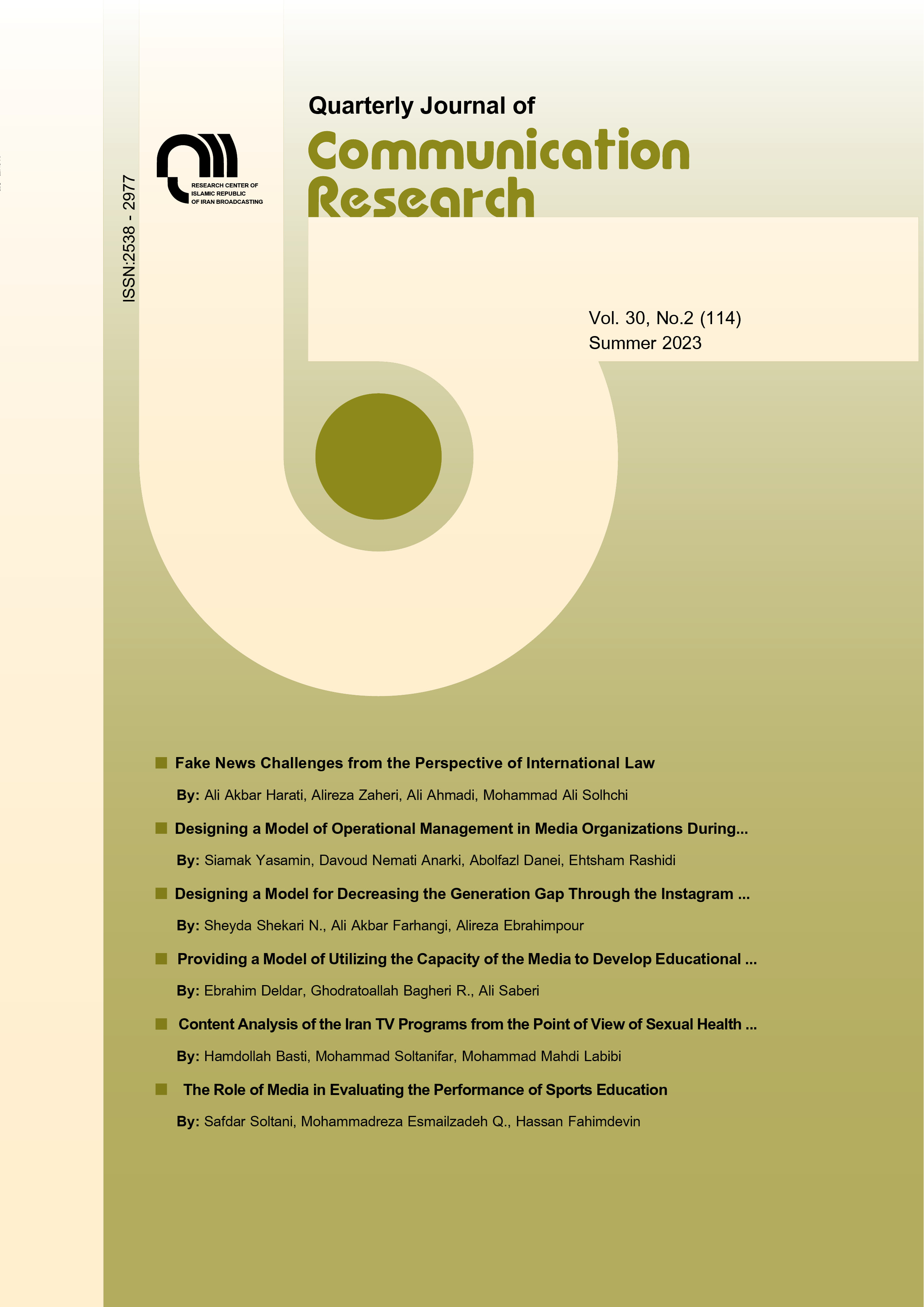Document Type : Original Article
Authors
1 International Law
2 Assistant Prof. In Law, South Tehran and Central Tehran Branch, Islamic Azad University, Tehran, Iran
3 Assistant Prof. In Communication, Allameh Tabatabai University, Tehran, Iran
4 Associate Prof. In Law, Allameh Tabatabai University, Tehran, Iran
Abstract
Emerging phenomena cause changes in current legal rules. The increase in cyber activities, including the publication of fake news to interfere in states governing, is an emerging phenomenon that has become one of the challenges of international law and has somehow cast doubt on the legal order governing the international community. It is also in conflict with the principle of prohibition of interference in the local affairs of governments, as a customary rule and a universal obligation. The article studied fake news and the prohibition of interference in the local affairs of countries from the perspective of international law. This qualitative research is developmental-applied in terms of its goal. To collect information, the method of studying documents and libraries has been used. Focusing on the rule of non-intervention and explaining the meaning of compulsion, this research showed that the principle of non-intervention can affect the spread of fake news - with the aim of influencing in governing. According to the findings of the research, fake news in some cases violates the principle of non-intervention and cannot be classified as "forced". It also argues that a new model of non-intervention should be developed to shift its focus from the conventional standard of coercion, i.e. Coercive and military measures, to the new standard of manipulation.
Keywords
Main Subjects

